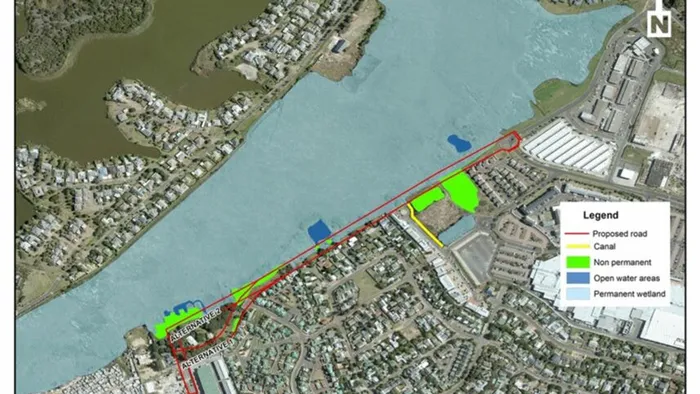City gets green light to build wetland road

The Noordhoek Environmental Action Group (NEAG) is reviewing the Western Cape High Court judgment on Houmoed Phase 1 Extension before deciding whether to appeal.
A Western Cape High Court judgment that gives the City the green light to build a road through a wetland to link Masiphumelele to Noordhoek is being reviewed by an environmental group before it decides whether to appeal.
The ruling on Thursday April 23 by acting Judge Karrisha Pillay rejected the Noordhoek Environmental Action Group’s (NEAG) challenge to the 2019 environmental authorisation for the Houmoed road link and the dismissal of the group’s appeal in 2020.
The City launched the road project in 2017 to extend Houmoed Avenue from the intersection with Buller Louw Boulevard to Lekkerwater Road in Sunnydale and from Lekkerwater Road to Fish Eagle Park in Masiphumelele.
It aims to provide better access for Masiphumelele residents to Noordhoek and surrounding areas and improve emergency services' response times, but environmental activists say the road will threaten the ecosystem in the Noordhoek wetland, which is a breeding ground for the endangered western leopard toad.
Currently, the majority of local road users in this area are travelling along Kommetjie Road (M65) as this is the only access route between Kommetjie, Ocean View, Masiphumelele, Capri, Noordhoek, Fish Hoek and beyond.
“We finally have an outcome that will allow us to go ahead and execute a project that we believe will bring huge relief to the community of Masiphumelele in the form of improved access, and savings in terms of transport fares and commuting time,” said mayoral committee member for urban mobility Rob Quintas.
"The risk of flooding in parts of Masiphumelele will also be mitigated because we will implement draining infrastructure to divert run-off from rain events to stormwater channels.“
The City did an environmental impact assessment (EIA) due to the presence of wetlands inside the road reserve.
“I want to give those concerned about the natural environment our full undertaking that we will do all we can to mitigate any impact on the wetlands inside the road reserve and the leopard toads. I trust the NEAG will accept the outcome of the court’s ruling and allow us to go ahead,” said Mr Quintas.
The project was unlikely to proceed in the 2024/25 financial year, he said.
Dr Andrea Marais-Potgieter, from the NEAG, said that although they were reviewing the ruling, they respected the decision of the court.
“We feel privileged to have been able to accompany the endangered western leopard toad and the wetlands during this process since 2017. The ruling confirms that if we really want to meet biodiversity targets that systems need to change rapidly, including legal systems,” Dr Marais-Potgieter said.
The co-founder of Toadnuts, Alison Faraday, said the ruling was disappointing. She felt the organisation’s concerns about western leopard toad populations facing extinction were not taken seriously enough.
“We're also deeply saddened by the fact that the judgment doesn't hold the well-being of the fauna in the wetland to be the most important criteria. Once again, the decision relies heavily on unproven mitigation methods. At this point, there's not much we can do, but we're committed to staying engaged in the process moving forward.”